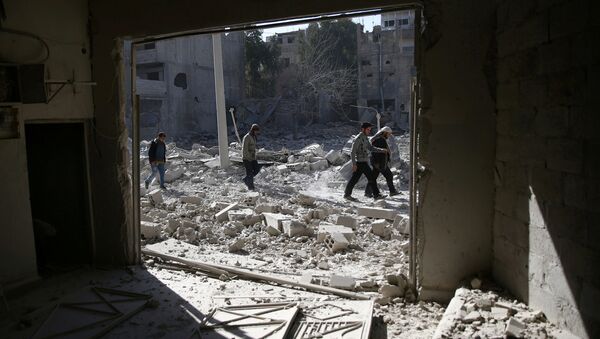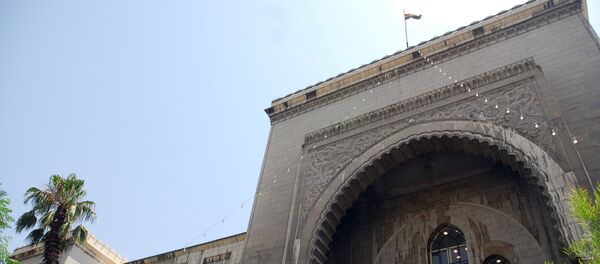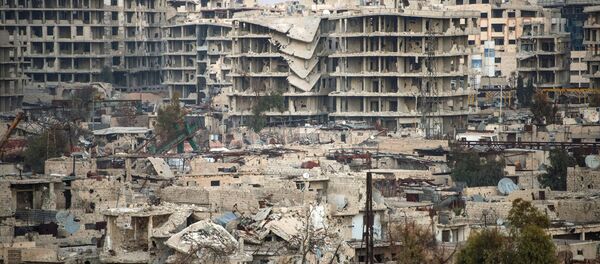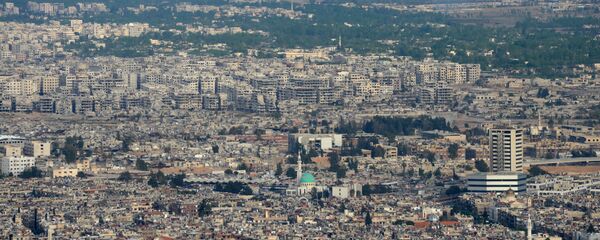On Sunday morning, members of al-Nusra Front launched a sudden attack on the positions of the Syrian government forces in Jobar, using a network of underground tunnels.
The militants also tried to attack army checkpoints by sending cars loaded with explosives onto them. However, due to a timely notification the army managed to prevent the attack and destroy vehicles before they approached the military facilities.
In the meantime, Syrian artillery continues to inflict pinpoint attacks on the firing positions of the enemy from Mount Qasioun which rises over the city.
Why Jobar?
Jobar is often regarded as one of the eastern suburbs of Damascus. It is located within the city’s borders and is one of the urban areas.
A year after the armed conflict in Syria began, Jobar was taken under control by armed groups, most numerous of which were the al-Nusra Front, Ahrar ash-Sham and Faylak ash-Sham.
The strategic importance of Jobar lies in the fact that it is located between the industrial zone of Kabun and Damascus-Homs highway. In addition, a significant part of the population of Damascus is concentrated in this area: some of the civilians voluntarily cooperate with the terrorists while others are held and used as human shields.
The same tunnels are used by the militants to store and transport various types of weapons and ammunition, as well as to make sudden attacks on the Syrian army.
Failure of the militants
The correspondent found out that the Syrian authorities repeatedly tried to reach an agreement with the militants on a local armistice in Jobar just as they did in a number of other settlements, such as Rif Dimashq, one of the 14 governorates of Syria.
However, all such attempts repeatedly failed and three weeks ago the militants rejected another ultimatum of the Syrian army, so the army resumed its offensive by beginning to encircle the enemy outposts in Barzeh and Tishreen.
According to the correspondent, at about three o'clock in the morning the militants tried to break through the defenses of the army units near a bus station on Abbasid Square. For them, this attack had both a symbolic and practical significance.
If the militants had succeeded in taking control of this square they would have gained a foothold for further attacks directly on the residential quarters of Damascus.
However, the concentration of the government’s forces was the highest in this territory and the attack failed. Shortly thereafter, the army launched a successful counteroffensive.
The outskirts of the Syrian capital remain among the most important areas for the government’s forces in the fight against terrorist organizations. On December 30, 2016, a nationwide Syrian ceasefire regime was introduced with Russia and Turkey as its guarantors.
Never miss a story again — sign up to our Telegram channel and we'll keep you up to speed!





